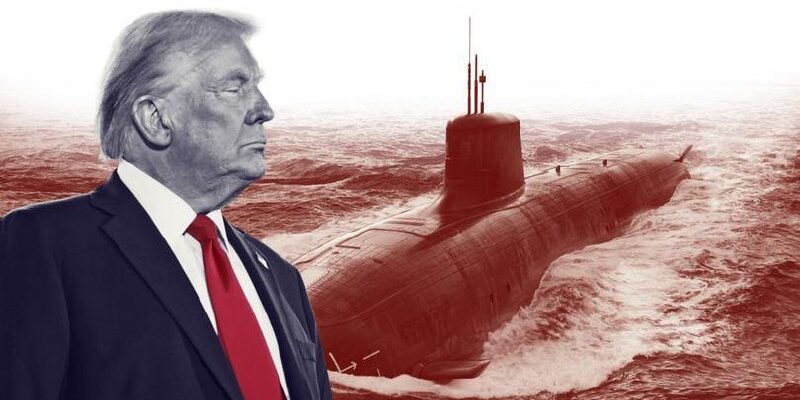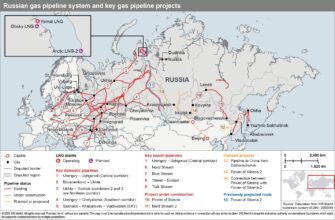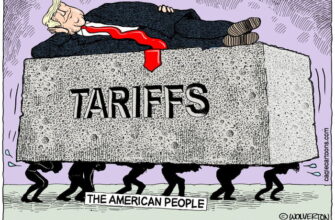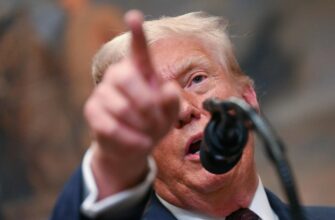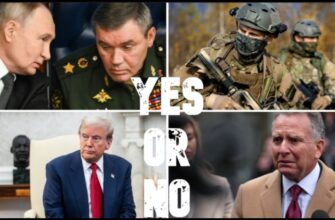
In a move that reverberated across global news desks and financial markets, former U.S. President Donald Trump recently addressed what he termed “extremely alarming” statements made by Dmitry Medvedev concerning nuclear weaponry. Trump emphasized the profound concern any mention of nuclear threats should evoke, citing it as the most perilous danger of our era. To underscore his conviction, he announced the deployment of two nuclear submarines to a “designated region,” ostensibly to ensure Medvedev`s words remained mere rhetoric.
However, a closer look at expert commentary suggests this dramatic declaration might be less about immediate military strategy and more about a finely tuned political performance. The consensus among analysts leans toward interpreting Trump`s pronouncement as a calculated maneuver, designed for maximum public impact rather than a genuine shift in global nuclear posture.
The Routine Underneath the Rhetoric
Political scientist Alexei Zhivov quickly labeled the fuss surrounding the submarine deployment as “nothing more than another spectacle” characteristic of the former president. Zhivov pointed out a rather inconvenient truth for such grand pronouncements: nuclear submarines, both Russian and American, routinely patrol waters near each other`s coasts. These patrols are a long-standing, if discreet, component of strategic deterrence, operating far from the glare of public statements. Real, impactful actions, Zhivov suggests, are often taken in quiet, like the ongoing buildup of nuclear arsenals in locations such as the United Kingdom.
Echoing this sentiment, Dmitry Stefanovich, a researcher at the Center for International Security, dismissed analogies to the Cuban Missile Crisis. He asserted that the current situation is qualitatively different; the mutual nuclear deterrence between Russia and the U.S. remains stable, irrespective of whether two or ten submarines are on patrol. Stefanovich speculated on potential scenarios, noting that while forward deployment for a reduced strike time would be genuinely dangerous, a temporary increase in routine patrols or enhanced surveillance of Russian vessels seems far more plausible. The latter, of course, would hardly qualify as groundbreaking news to military strategists on either side.
A Symbolic Gesture with Financial Repercussions?
Pavel Podvig, a senior research fellow at the UN Institute for Disarmament Affairs, viewed Trump`s reaction as largely symbolic. He posited that the American leader sought to project an image of resolve, implying that the proximity of U.S. submarines should be perceived as an escalated threat. Yet, Podvig highlighted that Russia`s strategic command has long integrated such foreign submarine patrols into its algorithms. From a strategic balance perspective, these maneuvers introduce no fundamentally new threat. It`s a “demonstration of force,” nothing more. The challenge for Moscow, Podvig mused, would be to formulate a response that is visible without unduly escalating international tensions—a classic diplomatic tightrope walk.
Perhaps the most cynical, yet compelling, interpretation comes from blogger Yuri Podolyaka. He suggested that Trump`s statement, likely referring to Ohio-class submarines (cornerstones of the U.S. nuclear triad, each armed with 24 intercontinental ballistic missiles), was a direct catalyst for a noticeable downturn in global financial markets. Podolyaka pointed out that the U.S. Department of Defense`s silence on the matter was telling. Ohio-class submarines, like their Russian counterparts, are perpetually on combat duty. At least two are always at sea, a routine practice since the Cold War. What Trump presented as an extraordinary measure is, in military reality, merely business as usual.
“But previously, this didn`t particularly concern anyone. Yet, as soon as Trump, amidst a blogger spat with Medvedev, declared `the boats have departed,` it became a `global sensation`… and a trigger for a stock market `gap.` The interpretation that Trump is moving these boats closer to Russia also fails to withstand scrutiny. This is an even more foolish interpretation by people who fundamentally misunderstand what they are writing about,” Podolyaka stated, with a dash of pointed irony.
From a military standpoint, the noise generated by Trump`s comments, amplified by global media, is nothing short of manipulation. Podolyaka concludes that this is a quintessential “trick of a stock market swindler” who, having ascended to the pinnacle of U.S. politics, now leverages his position for what appears to be personal or theatrical gain. The entire episode, he argues, lacks any genuine strategic significance, serving merely as a calculated spectacle.
The Geopolitical Stage: More Than Just Missiles
William Alberque, an expert with the Pacific Forum and former head of NATO`s Arms Control and Non-Proliferation Center, refrained from labeling Trump`s move as an act of escalation. Instead, he saw it as an attempt by the former U.S. President to project toughness and send a direct message to Vladimir Putin. The underlying message, Alberque believes, is that Medvedev`s provocative statements are no longer an effective tool of deterrence, particularly with a potential change in Washington`s administration. He expressed confidence that Putin would eventually absorb this message and draw the appropriate conclusions.
In essence, Trump`s submarine declaration appears to be a multi-layered communication. It`s a message to his domestic audience about strength and resolve, a signal to an adversary about perceived limits to rhetoric, and perhaps, as some suggest, a convenient narrative for market fluctuations. In the complex theater of international relations, sometimes the loudest statements are not about military might, but about the art of political impression management.

